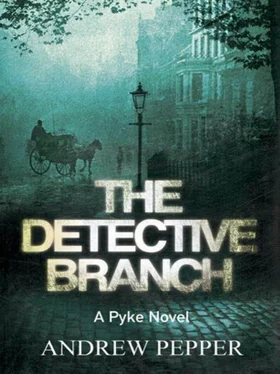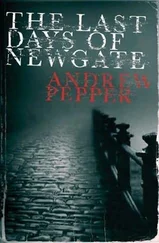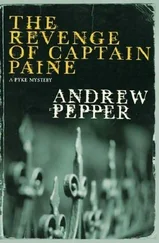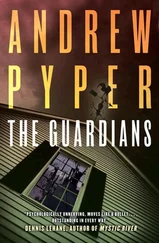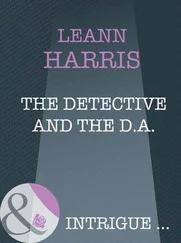Andrew Pepper - The Detective Branch
Здесь есть возможность читать онлайн «Andrew Pepper - The Detective Branch» весь текст электронной книги совершенно бесплатно (целиком полную версию без сокращений). В некоторых случаях можно слушать аудио, скачать через торрент в формате fb2 и присутствует краткое содержание. Жанр: Исторический детектив, на английском языке. Описание произведения, (предисловие) а так же отзывы посетителей доступны на портале библиотеки ЛибКат.
- Название:The Detective Branch
- Автор:
- Жанр:
- Год:неизвестен
- ISBN:нет данных
- Рейтинг книги:3 / 5. Голосов: 1
-
Избранное:Добавить в избранное
- Отзывы:
-
Ваша оценка:
- 60
- 1
- 2
- 3
- 4
- 5
The Detective Branch: краткое содержание, описание и аннотация
Предлагаем к чтению аннотацию, описание, краткое содержание или предисловие (зависит от того, что написал сам автор книги «The Detective Branch»). Если вы не нашли необходимую информацию о книге — напишите в комментариях, мы постараемся отыскать её.
The Detective Branch — читать онлайн бесплатно полную книгу (весь текст) целиком
Ниже представлен текст книги, разбитый по страницам. Система сохранения места последней прочитанной страницы, позволяет с удобством читать онлайн бесплатно книгу «The Detective Branch», без необходимости каждый раз заново искать на чём Вы остановились. Поставьте закладку, и сможете в любой момент перейти на страницу, на которой закончили чтение.
Интервал:
Закладка:
But he wasn’t free, not by a long way. Behind him, he heard shouting and, somewhere beyond that, the tat-tat-tat of a policeman’s rattle. At the next junction, he turned into a narrow alleyway and followed it as far as it took him. He turned again and continued deeper into the rookery, the houses becoming more ramshackle. When he reached the end of that lane, Pyke tumbled out on to a much wider, busier street. It took him a moment to work out he’d come as far as High Holborn, and just for a moment the brightness and noise were almost too much for him.
Up ahead, a drover and his two sheepdogs were herding a line of long-horned oxen in the direction of the market at Smithfield. Instinctively Pyke moved towards the group. He crossed the road, weaving between slow-moving drays, wagons and carriages, and noticed two constables with their stovepipe hats in the crowd behind him. Pyke kept moving, his head down and hands in pockets. The last thing he wanted was to draw attention to himself.
Out of nowhere he felt a hand clasp his shoulder.
Turning around, he saw the man’s dark blue swallow-tailed coat and brass buttons. The young constable had a truncheon in his hand and he swung it through the air. Pyke just managed to duck under it and kick the man’s ankles. Another constable saw the tussle and blew his whistle, and soon there were three or four stovepipe hats converging on him from different directions. Without thinking about it, Pyke scrambled into the middle of the herd and started to shout and flap his arms. The first animal reared backwards, its hind legs catching one of the sheepdogs, and another charged forward, ramming the ox in front with its horns. That set off a ripple effect, and soon the beasts were rampaging through High Holborn, panicked pedestrians pushing each other out of the way. It was hard to tell the human shouts from the petrified squeals of the animals as fully grown oxen slipped on the damp cobblestones and careered into traders’ barrows. Pyke took advantage of the confusion and slipped into an alleyway running perpendicular to the street. He could hear someone behind him, maybe the same man who’d tried to arrest him, but he didn’t stop. Finally, when he couldn’t run any more, he came to a halt in a sunless court, wheezing for breath. On the other side of the court was a slaughterhouse, but none of the men standing outside it paid him much attention. He walked past them, avoiding eye contact, and looked over his shoulder. The policeman had just entered the court. He heard the man’s whistle, darted into a passageway that ran along one side of the slaughterhouse and found himself in a yard surrounded by ten-foot-high brick walls. It was where the slaughterhouse discarded what they couldn’t use or sell — piles of hooves, teeth and cartilage. Flies hovered around the mass, feeding off the putrefying flesh. Pyke heard someone coming towards him down the narrow passage. There was no way out. Covering his mouth and nose, he dived into the mountain of flesh and quickly manoeuvred himself into the centre of the pile. The smell was so bad he retched instantly. He held his breath and counted at first to ten and then to fifty. Eventually he heard the footsteps receding.
Every time Pyke walked through the City of London, he was surprised not only at the number of people on the pavements but also the traffic on the roads, omnibuses seemingly disgorging hundreds of bodies every time they stopped. What surprised him just as much were the new buildings; on every street and at every corner, old lath-and-plaster Georgian edifices were being pulled down and in their place would suddenly emerge monstrous granite structures, soaring upwards into the grey skies. There was always a lot of discussion about the new city that was materialising, and when you walked along a particular street and came across one, two, sometimes three gleaming new edifices, it was hard to deny that progress was being made. But at what cost? Certainly fewer and fewer people lived within the square mile. This was now where the new public companies, flush with money following their stock market ventures, wanted to establish offices that were increasingly grand, each a monument to the ambition and vanity of their chairman.
Pyke found No. 23 Cheapside easily enough. It was another newly built structure, this one of modest scale and proportions. A fashionable linen draper occupied the ground floor, offices the upper floors.
The proprietor of the shop greeted Pyke warmly but some of this evaporated when he explained he was a private enquiry agent investigating a robbery that had taken place at the premises about five years earlier. Pyke had changed out of the clothes he’d been wearing and had bathed and scrubbed himself clean, but even so, he could still smell rotten animal flesh on his skin.
‘I’m afraid I wasn’t here five years ago, sir, and as you can probably see, nor was this building.’
‘Do you own it?’
‘No, I’m afraid I don’t. I rent it from the City Corporation.’
Pyke wondered whether this had anything to do with what Saggers had told him about Hogarth. As alderman for the Court of Common Council, which was an arm of the City Corporation, Hogarth had been instrumental in increasing the number of properties available for non-residential use.
‘Perhaps I could ask you just one more question?’
The draper smiled uneasily. ‘Of course.’
‘Do you remember the name of the contractor who pulled down the old building and put this one up?’
The draper wiped his hands on his apron. ‘I should be able to. I liaised with him about the plans.’
‘Was it Sir St John Palmer? Was it his company?’
Pyke knew from the draper’s reaction that he had scored a hit. The man stared at him, flummoxed. ‘Yes, that was it.’
Outside, Pyke wandered along Cheapside and came to a halt outside an older, lath-and-plaster building about six doors down from the draper’s shop. At one time it had perhaps been tenanted by one family of means, but now the number of bells and plates on the front door suggested that numerous individuals resided there. Pyke pulled one of the bells at random and, when no one answered, he tried another, then another.
The man who opened the door was elderly, with ash-white hair, stooped shoulders and poor eyesight. He was also hard of hearing.
‘What’s that, cock?’ he said, when Pyke asked him whether he’d known the person or people who’d lived at No. 23 before it was rebuilt.
Pyke repeated the question, this time almost shouting.
‘I knew ’im, not well, mind. But I knew ’im. What I call a God-botherer. ’
‘What happened to him?’
‘Eh?’
‘What happened to him? Did he move?’
‘He died. Sudden, like. Just keeled over one day. ’Is nephew fancied the old boy would leave ’im the property but when the will was read, turns out the old coot ’ad gone and left everything to the Church. More fool ’im, I say, but it must ’ave been a shock to the nephew.’ The thought of it made him chortle.
‘I just called in there; seems the draper is renting it from the City Corporation now,’ Pyke said, trying to rein in his excitement. He knew he was getting close. ‘So the Church doesn’t own it any more?’
‘No, they sold it to the City Corporation, as soon as they got their grubby little hands on it.’
Pyke almost put his mouth up against the old man’s ear. ‘Did you hear anything about a robbery there? Would have happened about five years ago?’
‘A robbery?’ He scratched his chin. ‘No, can’t say I did. But you said it ’appened five years ago, eh? That would’ve been around the time the old boy passed away.’
The garret room Pyke had rented, on Broad Street, was less than a hundred yards from Sarah Scott’s address on Berwick Street, but he had deliberately avoided her ever since his escape because he hadn’t wanted to involve her any further. After all, he hadn’t known for certain that their relationship, if that was what it was, was entirely secret, and there was always a slim chance that one of Pierce’s men, or one of Wells’s men, had followed her after her visits to Bow Street. He had left her a note explaining all of this, but now he felt that perhaps he owed her more than that.
Читать дальшеИнтервал:
Закладка:
Похожие книги на «The Detective Branch»
Представляем Вашему вниманию похожие книги на «The Detective Branch» списком для выбора. Мы отобрали схожую по названию и смыслу литературу в надежде предоставить читателям больше вариантов отыскать новые, интересные, ещё непрочитанные произведения.
Обсуждение, отзывы о книге «The Detective Branch» и просто собственные мнения читателей. Оставьте ваши комментарии, напишите, что Вы думаете о произведении, его смысле или главных героях. Укажите что конкретно понравилось, а что нет, и почему Вы так считаете.
